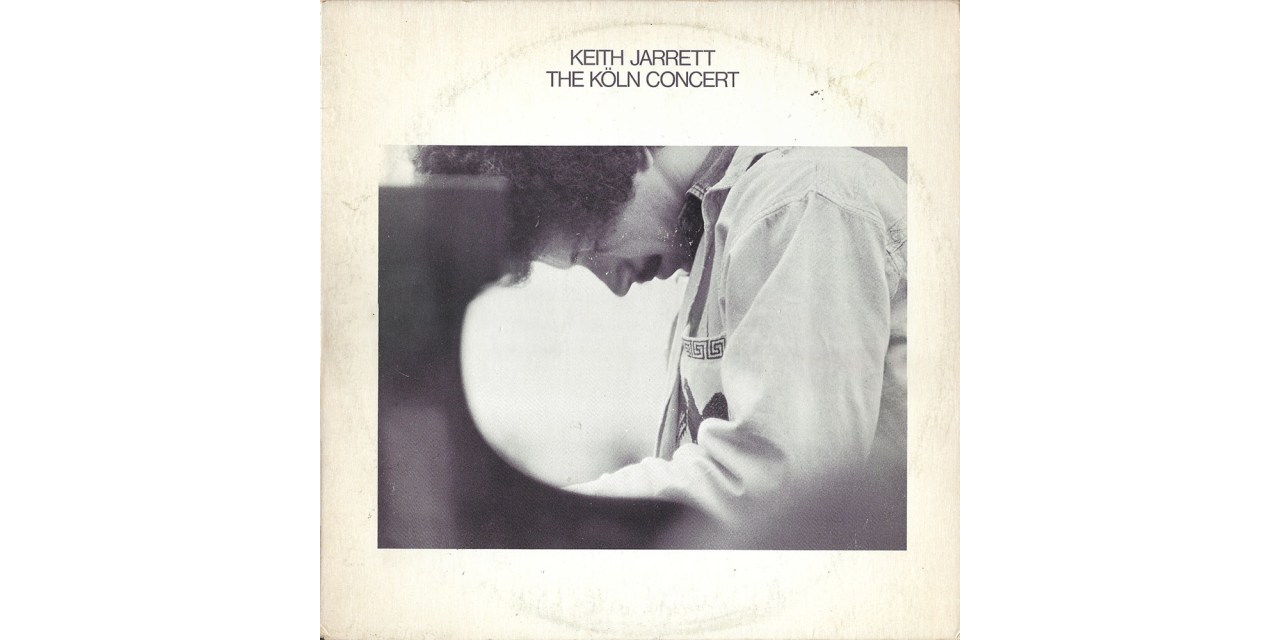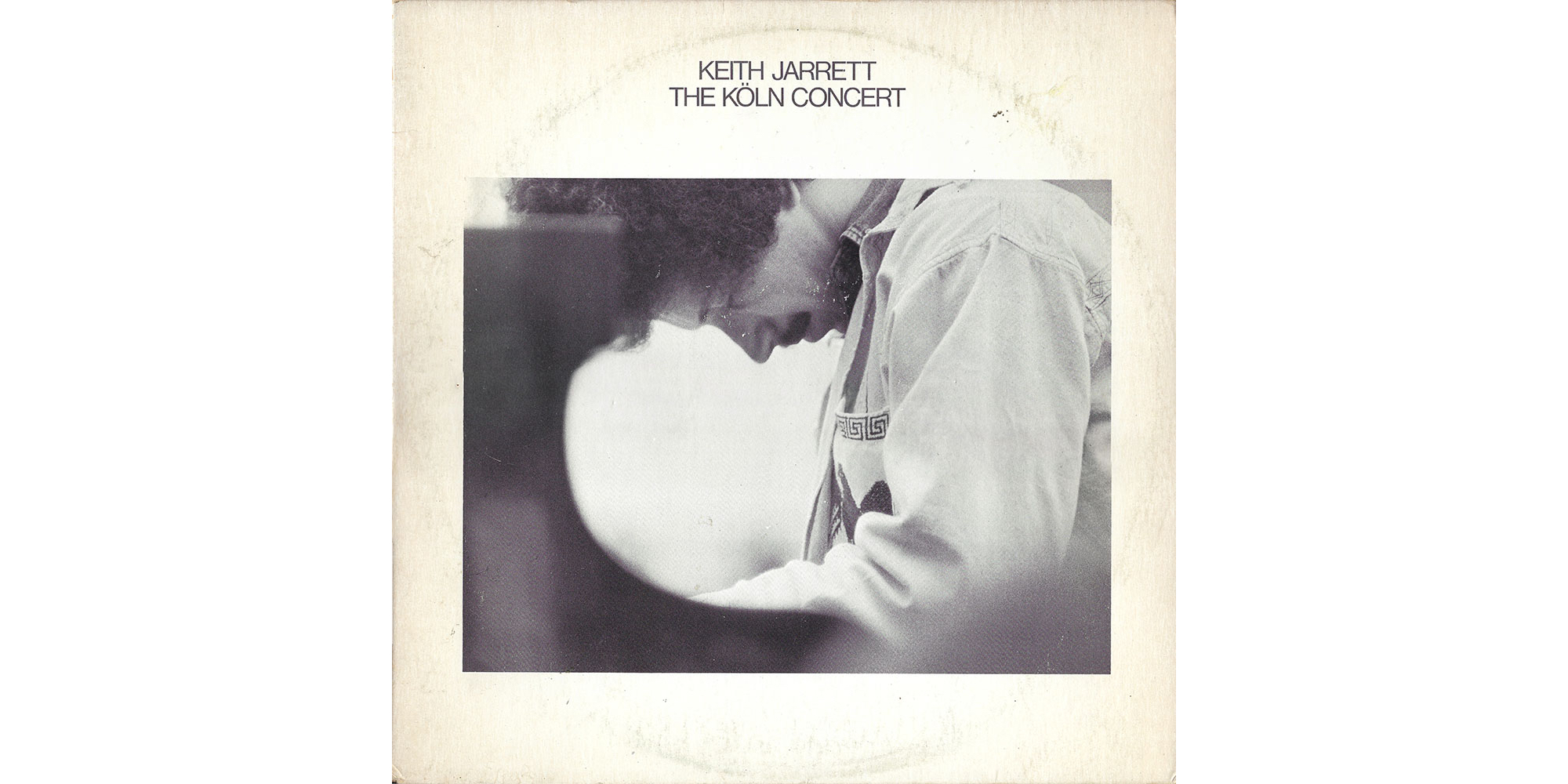Shortly before midnight on the evening of Friday 24 January 1975, at Cologne Opera House on the banks of the Rhine, a wiry 29-year-old from Pennsylvania walked onto the stage in front of a crowd of 1,400 people and began to play the piano, alone. The 50th anniversary of what followed is being celebrated with a number of events and documentaries across the world this week. A recording of Keith Jarrett’s performance that night, released on 30 November 1975, went on to become the best-selling solo piano record of all time.
The record was produced by ECM (Edition of Contemporary Music), a prog jazz label that was at its peak in the mid-1970s, with The Köln Concert its crowning achievement. My father was already an ECM devotee by 1975 and would routinely come home from his working week on a Friday night with a new album of theirs, usually purchased at Mole Jazz in King’s Cross (a shop that survived long enough for me to become a regular in my early days in London in the late 1980s).
Grumpy Jarrett, having played in Lausanne the previous evening, had just spent five hours driving 430 miles from Switzerland in a cramped Renault 5
So I’m pretty certain he would have come home carrying the distinctive cream-white gatefold sleeve of The Köln Concert at about 7 p.m. on Friday 5 December 1975 and put it straight onto the turntable. Assuming I was present – and given that I was only seven, I probably wasn’t out on a Friday night – I would have heard it for the first time that evening too. Since that evening, I have heard it hundreds, if not thousands, of times. It has become part of the soundtrack to my life.
My feeling of identification with the piece was cemented a couple of years later, on 23 October 1977, when my parents took me to see Jarrett’s first UK solo show, at the Theatre Royal, Drury Lane. I don’t remember a great deal about the evening beyond an awareness that all the adults in the audience – seemingly everyone but myself – were taking it all very seriously indeed.
John Fordham, writing in the Guardian in 2011, recalled: ‘From the mid-70s on, his [Jarrett’s] concerts began to resemble religious rituals, attended by flocks of devotees for whom his music had a meditative, spiritual and transformative power. And all this stemmed from the recording of a single album [The Köln Concert].’
For years afterwards, I somehow thought that my parents had chosen to take me rather than either of my siblings because they had seen something in me, an extra degree of receptiveness or sensitivity perhaps. I now learn, after talking to them ahead of writing this, that it was simply because my older sister was busy that night – with a Brownies social event, or similar. Nevertheless, my attendance sealed my feeling of association with Jarrett.
Our seats were in the first row of a balcony, and I had to lean forward to be able to see. Or I could close my eyes and just listen to this guy on his own playing the piano. I mostly did the latter.
When I left home in 1985, I pinched my father’s copy of The Köln Concert. And then, having finally worn out the vinyl, I bought a fresh copy a decade later, which I still have. Insisting other people who didn’t know it gave it a listen became a staple – and no doubt annoying – part of getting to know me in my late teens and early twenties. I still listen to it at least monthly. I’ve heard it so many times I no longer even know if it’s good or if I even like it – it’s just a fact of life.
For Jarrett, its wild success became a burden he had to carry around, as it was more popular on its own than the countless other records he made put together. What actually is The Köln Concert? Well, despite being routinely classified as such, it’s not, for me, a jazz record. Instead, it veers between being a classical piece in the vein of Glenn Gould playing Bach – complete with the occasional expressive groan – and a gospel blues: at its most euphoric moments, you can imagine Mahalia Jackson is about to join the party. It has moments of almost silence, particularly in its transitions, and passages that are exhilarating, almost transcendentally so.
I know whole chunks of it so well that I can ‘sing’ along – but there are other parts that still elude memory and so surprise me – twists I don’t see coming even now. The expression ‘no notes’ has lately become a slang term for accomplishment. Jarrett did ‘no notes’ that night, playing for 1 hour 6 minutes and 7 seconds without sheet music, instead improvising the whole performance (except for the short encore, which he played from memory from his own back catalogue).
But according to the legend, The Köln Concert very nearly didn’t happen at all. Grumpy Jarrett, having played in Lausanne the previous evening, had just spent five hours driving 430 miles from Switzerland in a cramped Renault 5 and had a bad back as a result. He was booked to go on at 11.30 p.m. because there had already been an opera in the hall that evening, which meant the promoter, Vera Brandes, could hire the grand venue on the cheap. But somehow, in the switch-over between shows, they managed to ‘lose’ the concert grand piano Jarrett was meant to be using. When he saw the proposed substitute – a baby grand meant only for rehearsals – and found that it was out of tune with faulty pedals, he initially refused to go on.
Brandes, who was just 18, pleaded with him: ‘If you don’t play tonight, I’m going to be truly fucked.’ A piano tuner got to work. Jarrett finally relented, but the poor-quality instrument meant he only felt confident playing in the middle range, changing what he had planned. He would later recall: ‘I was forced to play in what was – at the time – a new way. Somehow I felt I had to bring out whatever qualities this instrument had… my sense was, “I have to do this. I’m doing it. I don’t care what the fuck the piano sounds like.”’
He had a bowl of pasta for fuel and went on, even later than the planned late start. The rest is history – mine and yours too – because even if you don’t think you know it, you’ve undoubtedly heard it many times too, on various soundtracks on TV or in film. It’s a part of the cultural furniture. I would see him live a couple more times but always with a band, never solo again. But solo is now the only way he plays. Jarrett hasn’t performed in public since a debilitating double stroke in 2018 severely restricted his movement, though he reputedly still plays piano alone, one-handed, no doubt with fewer notes than that night in Cologne.








Comments